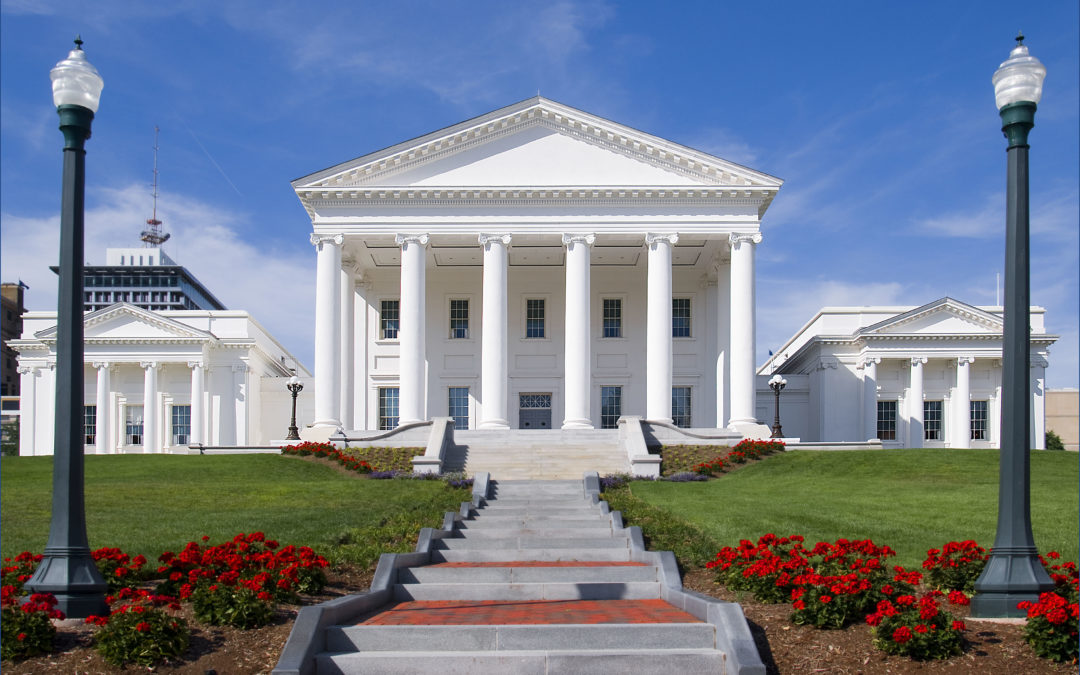On Wednesday, September 6th, the House and Senate met in Richmond for a special session in order to complete our work on the state budget. By a vote of 86-4, we adopted amendments to the existing state budget by way of House Bill 6001. These set of amendments represent a compromise by both parties–neither side got everything they wished for. That is the reality of a divided legislature.
In the special e-newsletter below, I have highlighted a number of key provisions included in this new set of amendments. I hope that you find this update useful and informative.
Key Background
The General Assembly previously adopted a two-year budget that went into effect on July 1, 2022. This biennial included $4 billion in tax cuts prioritized by Governor Youngkin. Because state revenues often change during the biennium, the legislature returned in January 2023 for our regularly scheduled session and began the process of considering amendments to the existing budget.
Depending on the claimant, the state had an extra $4 to $5 billion in unappropriated funds as a result of higher than expected revenue. Had the legislature failed to act, those funds would have simply sat in the bank until such time as they were appropriated by the legislature. There was no risk of a government shutdown as the state had (and continues to have) a biennial budget in place.
Unfortunately, the House and Senate were unable to come to an agreement concerning the budget during the regular legislative session. Instead, we passed a “skinny budget” that made several stop gap funding expenditures. That included $201 million to fix a funding error for schools, as well as a deposit into the state’s rainy day fund.
Over the course of the summer months, negotiations progressed on a full set of amendments. That agreement was presented to the House as House Bill 6001 and received a vote on the floor. As set forth in a procedural resolution adopted by the body, we did not offer floor amendments to the bill. Rather, it was voted on as presented.
Tax Relief
As I previously reported, the top line discussion surrounding this set of budget amendments revolves around tax relief. The set of budget amendments adopted on Wednesday include an additional $1.05 billion in tax relief for Virginians. This relief comes in several forms:
- Direct rebate checks ($200/individual; $400/couple)
- Increase the standard deduction ($8,500/individual; $17,000/couple)
- Eliminate the age cap for military retiree subtraction (current cap of 55 years of age)
- Reinstates the sales tax holiday for school supplies, clothes, emergency preparedness items, energy efficient appliances, etc.
With such a large surplus in state revenues, it is clear that Virginia can afford significant tax cuts. I certainly would have preferred a larger cut that benefited families, but this budget is a compromise. I remain hopeful that the legislature will consider additional tax cuts when we convene for our regular session in January.
Education
House Bill 6001 makes significant investments in public education by increasing funding by $645 million. This funding comes primarily from the general fund, but also includes $86.2 million from Lottery proceeds.
The majority of the new education is one-time spending. This totals approximately $418 million and is available to assist school divisions with items such as learning loss and preparation for the implementation of the Literacy Act. School divisions will be required to report how these funds are spent.
The budget amendments also include funding for a 2% teacher pay raise. This is on top of the already adopted 5% pay raise, meaning that Virginia teachers will receive a 7% raise in 2024.
Additionally, the budget amendments include funding for additional support staff (counselors, test administrators, etc.) and $20 million in grants for school safety upgrades.
In addition to tax relief and education, the budget makes investments in public safety, health, natural resources, and other portions of state government. A few headlines include:
- $155 million in new spending for mental health services, including funds to crisis receiving centers and crisis stabilization units
- $15 million in increased funding for Operation Ceasefire
- Additional 2% raise for state employees (on top of 5% raise already adopted)
HB 6001 now goes to the Governor for his consideration. He can sign the bill into law, veto the bill outright, or propose additional amendments. If the Governor proposes amendments to the bill, we will return to Richmond in order to debate and vote on those amendments.
I hope that you find this update is informative. Please know that I have not covered every single aspect of the state budget in this email as that would be closer in length to a novel. You can learn more about this set of amendments by viewing this informational document prepared by the House Appropriations Committee staff.
Sincerely,
Mike Cherry

